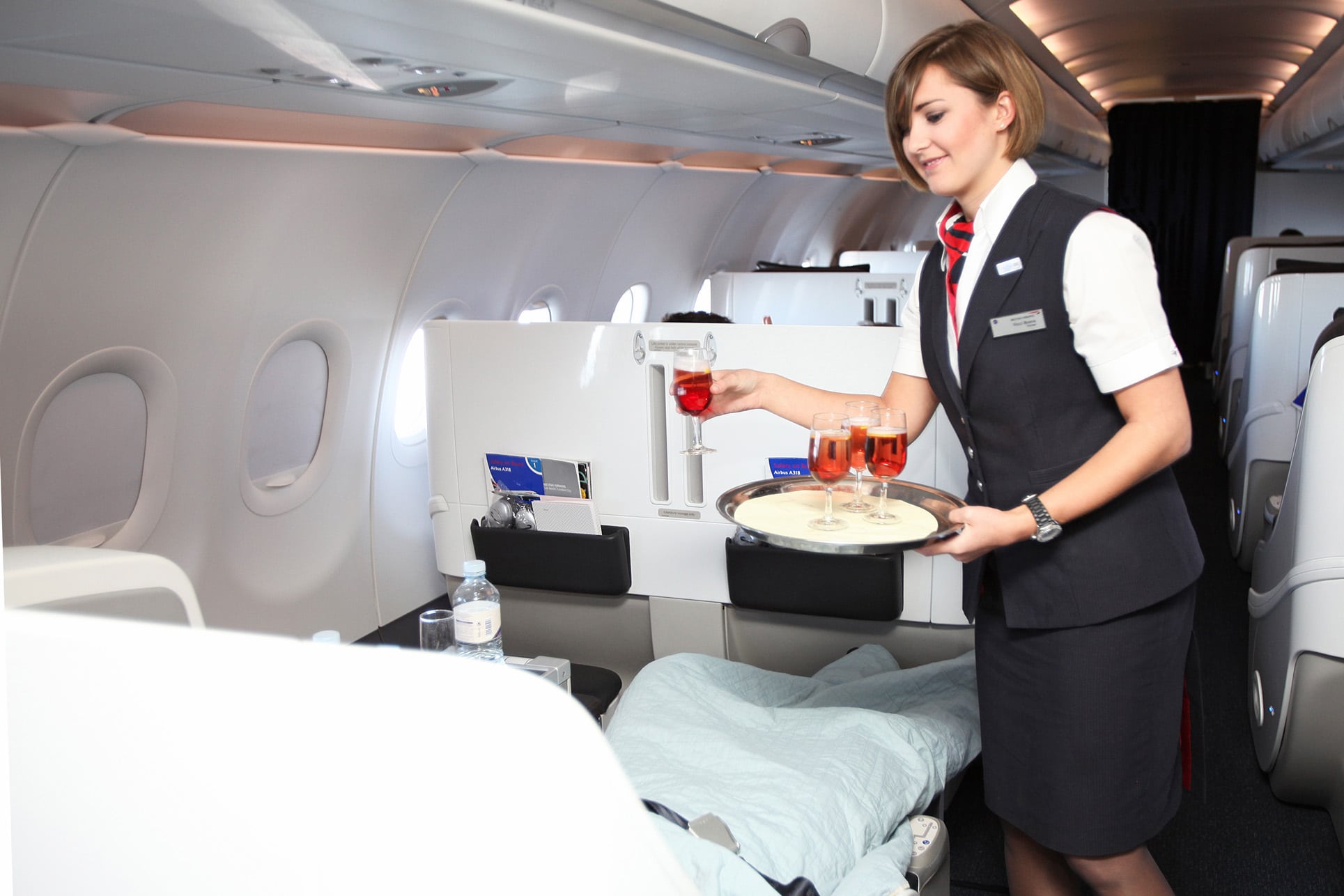Skift Take
As Professor Walsh says: “Flying presents the body with a unique set of challenges, but getting a proper sleep on a flight isn’t rocket science.” Though frequent flyers will point out that it can defy the laws of Physics.
British Airways, the airline which introduced the first fully-flat bed to Business Class, has a well-established tradition of creative use of technology and science to enhance its passengers’ in-flight REMs.
In support of its recent innovative “happiness blanket” experiment, British Airways turned to Vincent Walsh, professor of human brain research at University College London to explain the Science behind getting a good night’s sleep onboard.
“Sleeping on a plane is a great opportunity to reset your body clock so you arrive at your destination after a long flight, feeling refreshed and rested,” says Walsh. “The short transatlantic flights west give a great opportunity for naps that will refresh you for that long first evening in New York or LA.”
Professor Walsh’s top tips for a restful flight:
• Have a light pre-flight meal before you board
• If you can, book a seat that lies fully flat or reclines as much as possible
• Take off your shoes, to improve circulation
• Don’t drink any alcohol and avoid anything with caffeine, such as tea, coffee or fizzy drinks
• If you’re awake, always take the hydration offered
• If you want to sleep, try to not watch any movies, use your tablet computer or mobile phone
• Wear an eye mask and ensure any lights around you are off and the window blind is down
• If you want to relax, put in ear plugs or listen to a specially made relaxation soundtrack
• Listen to your body. Sleep is not a waste of time
• If sleeping pills help you, only use them at bed time in New York, if you’re flying from London to New York. Whereas if you’re flying from London to Beijing, take the pills at Beijing bed time, while you’re on board the flight
• If you fly often make a habit of these things. Sleep hygiene is a habit.
Walsh explains the science behind these tips: “You need to ensure your brain has as few distractions as possible so that you can ease it into a different time zone. Lying down, making sure you have as much darkness as possible and covering your eyes from any available light source, by turning off your in-flight entertainment, phone and computer, all go a long way to helping you to sleep and fly well.”
Many of these recommendations conflict with the onboard services passengers value most: in-flight meal service, drinks, in-flight entertainment, and in-flight connectivity—all big priorities for passenger experience enhancements, on which airlines spend a bundle. Airlines invest large sums on those inflight meals too, especially for premium flyers; and for many passengers it is all part of the experience that makes flying special.
Few airlines give passengers complimentary water or alcohol, outside of their premium classes, but many have free-flowing tea and coffee throughout the aircraft. As Economy passengers will point out, reclining further may not be feasible in when sitting in a new slimline seat “pre-reclined” to 6-inches, but many of the other tips work, no matter what class of service you fly.
Walsh emphasizes that passengers be mindful of their need to rest above these other distractions, saying: “You can never underestimate the importance of a good sleep.”
British Airways has tried to ensure that passengers using their in-flight entertainment have recourse to soothing options, likely to help put them to sleep. For example, the airline has an in-flight podcast program on the audio channels to help passengers de-stress. British Airways also introduced an innovative Slow-TV channel with soothing landscapes playing at the speed of computer wall paper, which hypnotizes passengers until they fall asleep.
For those who need their creature comforts from actual creatures, British Airways has now introduced a Paws and Relax channel, to help distract their passengers suffering from anxiety or fear of flying. Science is applied to the passenger experience here again. As British Airways In-Flight Entertainment Manager, Richard D’Cruze, shares:
“We’ve been doing some research on the type of content that will help our customers to relax and enjoy their flight. We discovered some scientific research that proves watching images of cute animals can help lower your heart rate and reduce your stress levels.”
So there you have it: British Airways proves that Science is not just for penguins (though penguins may feature on a future Slow-Flippers nature channel).
— SciencePorn (@SciencePorn) July 10, 2014
The Daily Newsletter
Our daily coverage of the global travel industry. Written by editors and analysts from across Skift’s brands.
Have a confidential tip for Skift? Get in touch
Tags: british airways, in-flight
Photo credit: A smart passenger would just say no to this drink. British Airways
